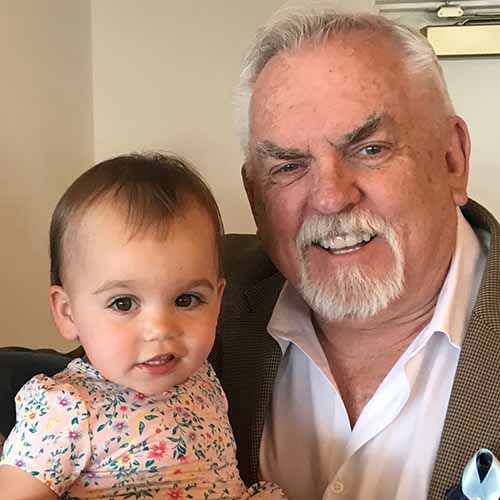
You and your parents probably remember John Ratzenberger as the know-it-all mailman and bar regular Cliff Clavin on the hit TV show “Cheers,” but your kids have never heard of him. At least, not by those names. Depending on their ages, they may know him as the animated voices of Mack in “Cars,” P.T. Flea in “A Bug’s Life,” The Underminer in “The Incredibles” or Hamm the Piggy Bank in the “Toy Story” franchise. In fact, Ratzenberger has voiced characters in every feature-length Pixar film in the studio’s 24-year history. And on June 21, he will return to the big screen as Hamm when “Toy Story 4” opens on this first day of summer.
The 72-year-old Ratzenberger has crafted a career that links baby boomers, Gen X’ers, millennials and Generation Z through unforgettable characters. A former carpenter, he fell in love with a strong sense of comedy, character and improvisation by chance, and they have dominated his career. He has dozens of movie credits to his name, and his non-comedic projects include the TV documentary series “Made in America,” which promoted American manufacturing and entrepreneurship – a topic close to his heart.
Your work in TV and movies has drawn fans of all ages. Do you try to bridge those generational gaps?
I don’t do anything consciously about bridging generation gaps [in movies and sitcoms]. When I started voicing the piggy bank, Pixar is really what bridged the gap for me. It’s easy, I think, the way Pixar does it. [Former Pixar Chief Creative Officer] John Lasseter brings such a childlike enthusiasm to it. They know every punctuation, every breath that the character takes. The writing is excellent. They’ve really done all the heavy lifting, so that it’s just easy.
With Pixar, it’s like going into a sandbox with a bunch of friends. I don’t see a challenge, I just listen to what the director says.
How many children and grandchildren do you have, and are you planning to see “Toy Story 4” with them?
I have two children, a son and daughter, and three grandchildren. They are 6, 10 and 17 months old. I’m thinking of taking the older two to the opening.
Have parenting and grandparenting influenced the kind of acting decisions you make?
I’m very conscious of the fact that, long after I’m gone, I want my grandkids to be able to point with pride and say, “Yeah, that’s my grandfather.” So, I’ve turned down a few things that I just didn’t want to do. I did that for my own kids. “My kids are going to be watching that one day,” I said once, and I lost an agent over it. But I need to feel good about the work. For instance, I won’t do anything that depicts children being harmed.
How did you get into acting?
I grew up in Bridgeport, Connecticut, a factory town. I used to be a carpenter. In college, I was an English major, and a friend in the drama department talked me into trying out for a play. It was the last thing I wanted to do, but I was just sweet on [a girl], and I agreed to be the understudy for the lead. Well, the night before opening night, the lead quit, and I was on stage not having read. The scripter was behind the curtain shouting lines to me, and I did my best, but all of a sudden, I just started making up my own lines, and the audience was just laughing and laughing. Everybody else in the cast wanted to kill me because I had changed pretty much the entire play on stage. After college, a buddy in London invited me over. I toured comedy shows throughout Europe. Towards the end of my stay, they were making a lot of movies over there that I was right for. I had done close to 30 movies before I got to “Cheers.”

How did growing up in a factory town shape who you are?
It was easier in my generation. Not only did we go outside and play, our parents insisted on it. We knew how to work with our hands. In hindsight, we became problem solvers. The young people today, some of them can’t even read a ruler, let alone use tools. We need to bring shop classes back into the schools in America. I lecture on this topic nationwide. When I was doing my show “Made in America,” I discovered that there’s no young people going into manufacturing. When you’re doing things like carpentry, you’re also learning math, algebra, geometry, physics, percentages, angles. We have an infrastructure that has to be maintained, the water has to get to our sink faucets, the roads have to be drivable. We need young people to go into these fields.
As a father, I made sure that I handed that down to my children. How to work with their hands, how to fix things, and so, they don’t get flustered.
How did you balance your career with family life?
I tried to include my children, like having them traveling with me to the set. In the summers, every time there was a break from “Cheers,” we’d go fishing and horseback riding. It was my only chance with these kids. You find that if you spend time with them when they’re young, the less problems you have when they’re older.
What are your Father’s Day plans?
Mine is to do as little as possible. I’ve got a place outside of L.A. in Rancho Mirage. My plan is to play golf and jump in the pool. Eat a hot dog.

























